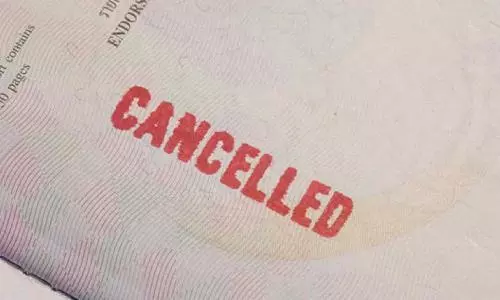
Double standard in justice: Will it ever end?
text_fieldsChairman of the Law Commission B S Chauhan has once again triggered a public discourse about the fundamental drawbacks in the Indian legal system that remains unresolved even after seven decades of independence.
‘The legal system in our country benefits the rich but has gone beyond the reach of poor people. Just imagine what will happen to the people in the economically backward section of the society. That’s when we realise that the legal network is highly complicated. "Big lawyers can defend any kind of greatest offence. Even if I who retired as a Supreme Court Judge, hire a lawyer to fight my case, I would not be able to afford them. They are so expensive nowadays and they charge per hour, per day, like taxis. The legal procedures and the bail system are so complicated that they lead to the denial of rights of the poor. We are familiar with the term ‘Bail not Jail’ but the poor person remains in the jail for his entire life due to high fees charged by the lawyers. A poor person can’t even think of the move to the court whereas the rich persons access it even before they get the arrest warrant’. Chauhan fearlessly divulged these relevant facts about the prisoner’s rights in the seminar organised by the Tihar prisons in collaboration with Bureau of Police Research and Development, Delhi University's School of Social work, and non-profit rights group Commonwealth Human Rights Initiative (CHRI).
Although the drawbacks of the Indian legal system has been revealed in different instances and became a subject of active discussions, Chauhan’s statements once again reiterates that the democratisation of the system is of immediate relevance. To ensure credibility of democracy, a legal system that is accessible to everyone is essential. It is only through an easily available legal system that we could ensure that the Constitutional goals have been made available to all the citizens. Only then is it possible to ensure that the power to question the obstacles towards accomplishing the democratic goals of the citizens has been acquired and that the justice denied could be reclaimed. However, studies have shown that our legal system and its discourses are still in the clutches of high-caste supremacy and economic highhandedness. That is why even today it is beyond the reach of poor whereas it is easily accessible to the rich and the powerful. Justice Dattu during a verdict criticising the pending of cases in courts and the trials getting delayed indefinitely, stated that the judicial system in India was a tragedy as far as the common man was considered. He observed that while the rich, powerful and influential people were given priority in hearing cases, the judiciary was ignoring the common man.
Implementing restrictions regarding the fee of lawyers is equally relevant significant like the transparency in the legal system. Without such restrictions, the corridors in the legal system would remain closed before the poor. Legal experts have many a time raised apprehensions over the influence of the senior advocates and close connections with the law makers badly influencing the legal system. It was only recently that the Supreme Court Chief Justice brought an end to the ongoing practice of the senior advocates who seek urgent hearing of cases, jumping the queue because of their seniority. Mentioning matters in the Supreme Court to get them listed for early hearing is a practice that is frowned upon. Advocate P V Dinesh had objected to senior Counsel mentioning out of turn which brings to light the predicament of misusing the provisions entitled to the common man as means of relief even in Supreme Court. At a time when fanatic nationalism becomes aggressively rampant, there are situations where even the bar associations deliver verdicts without trials and create circumstances that hinder legal assistance to the accused. The Chairman of the National Law Commission accentuates the disturbing reality that the flaws and weaknesses existing in the present legal system of ours are making those who are economically and socially backward feel that prisons are nearer and justice, too far away.























